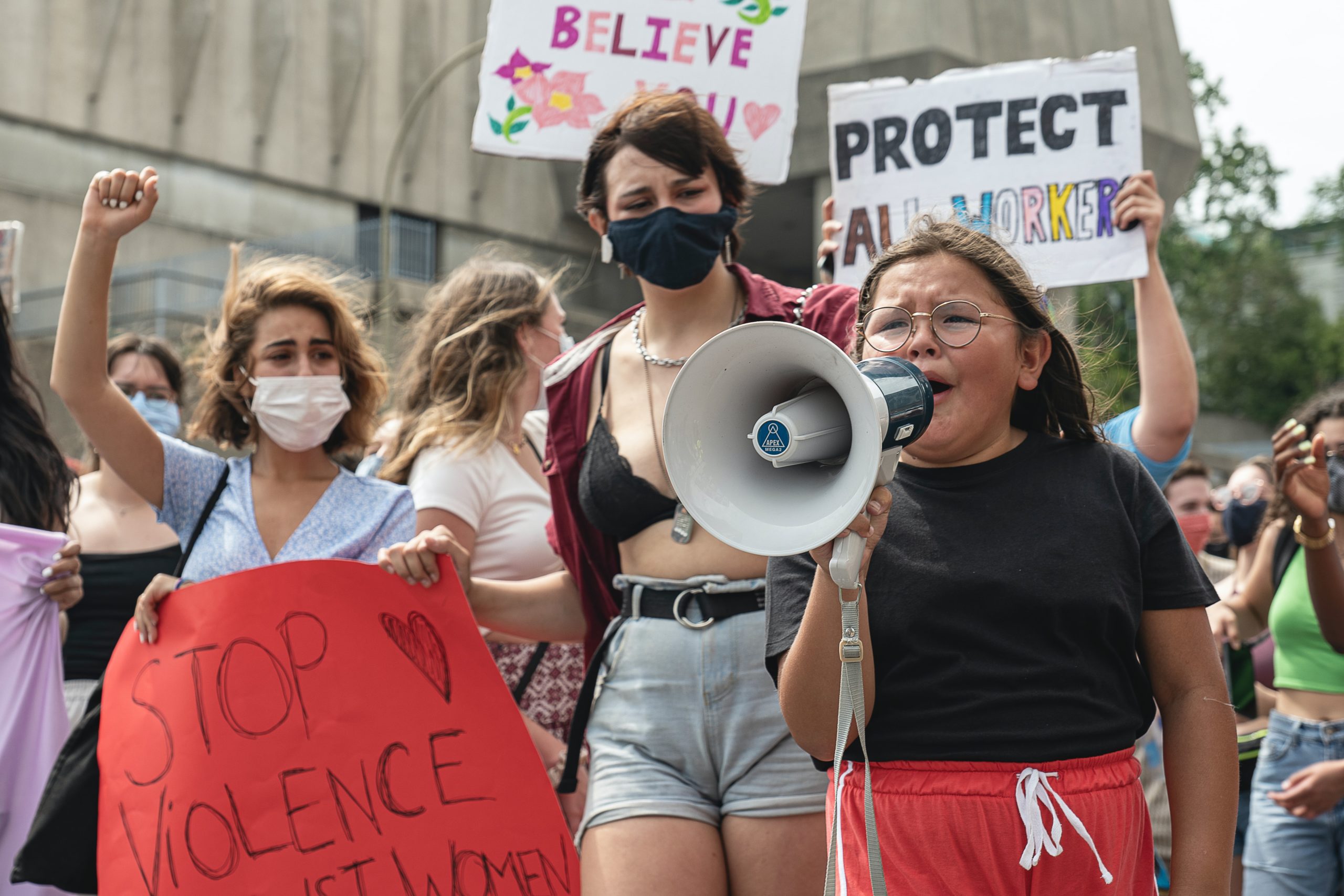
By Dr Melany Cruz , Teaching Fellow, Department of Political Science and International Studies, University of Birmingham.
“The importance of naming violence not only permits us to make a distinction in the law but invites us to reflect on the foundation of individualised experiences of violence.”
Sarah Everard’s disappearance and murder by a Metropolitan Police officer has triggered, once again, the discussion of violence against women. The shocking events and the details of Sarah’s death are leading to the sensationalist reproduction of moral panics by the media, but also has opened the way for a necessary conversation about how normal the violence against women (VAW), girls, and trans-people is in the U.K.
Women have taken to the internet to talk about their experiences of sexual abuse, harassment and the fear they feel at night, in the street or at home. They are pointing fingers at men, to all men, who bear responsibility for failing to engage in the social and political conversation that is violence against women. As reactionaries emerge, we hear back: ‘not all men’.
This is a circular debate surfacing – again – amid a tragedy. Tragedies, like with Sarah, have the effect of revealing traumas and scars, which in the case of VAW are very much collective and universal. ‘There is no woman in my life that has not encountered a form of violence’, people tweet and debate. But why? The circular debate that emerges when tragedies surface fails, sometimes, to catch the essence of such violence. The suggestion of all men sharing responsibility tells us something about the structural foundation of VAW. For that reason, naming violence is a very important political task.
The movement ‘Ni una Menos’ (No [woman] less) in Latin America gives us some insight to address the foundation of the violence that Sarah suffered. Activists and feminist thinkers alike have called the killing of women ‘feminicides’ (feminicidios) to express the anger of the systematic gender-based violence that women, girls and trans-people encounter in the region. There is something in the naming of this violence that has empowered the movement and pushed law-makers to rethink the ways these crimes are addressed and punished.
Fregoso and Bejarano’s book Terrorizing Women (2010) makes an important distinction in the political dimension of naming the killing women. Femicide and feminicide are used interchangeably in the discussion, but they indicate different dimensions of how this violence needs to be addressed. Femicide carries an essentialist notion of women purely based on their biological sex that equates gender and sex as one. Whilst feminicide, they argue, responds to the historical dimension of power dynamics existent in the murdering of women. It maps and layers the intersections of gender, race and class that exist when we look at this phenomenon (Fregoso & Bejarano, 2010: 3-4).
The importance of naming violence not only permits us to make a distinction in the law but invites us to reflect on the foundation of individualised experiences of violence. The feminicide of Sarah Everard was not random nor simply a consequence of police overlooking reports of sexual abuse – as we know now that the alleged offender was reported for indecent exposure days before Sarah’s kidnapping – but underlines the social and political structures of VAW. When in 2016 Lucia Perez was murdered in Argentina, there was a collective cry shouting ‘no more feminicides’, ‘nos queremos vivas’ (we want us alive), ‘no estamos todas’ (we are not all here). This was a turning point for the Ni Una Menos and feminist movement in Latin America. Naming the killing of women as feminicides finally expressed the collective trauma and grief we all felt for Lucia and that we are now feeling for Sarah. It is yet to be seen if this feminicide will unleash a movement. The scenes at the vigil held in Clapham Common on Saturday and the disproportionate heavy-handed response from the MET, show us that forces of discontent are growing in numbers and in political organisation. Is it time for a Ni Una Menos movement in the U.K? It is too soon to tell, but the defence of the right to protest is definitely a start.
Dr Melany Cruz is a Political Theorist, researching political violence and feminism in Latin America.
- Find out more about POLSIS at the University of Birmingham
- Back to Social Sciences Birmingham
